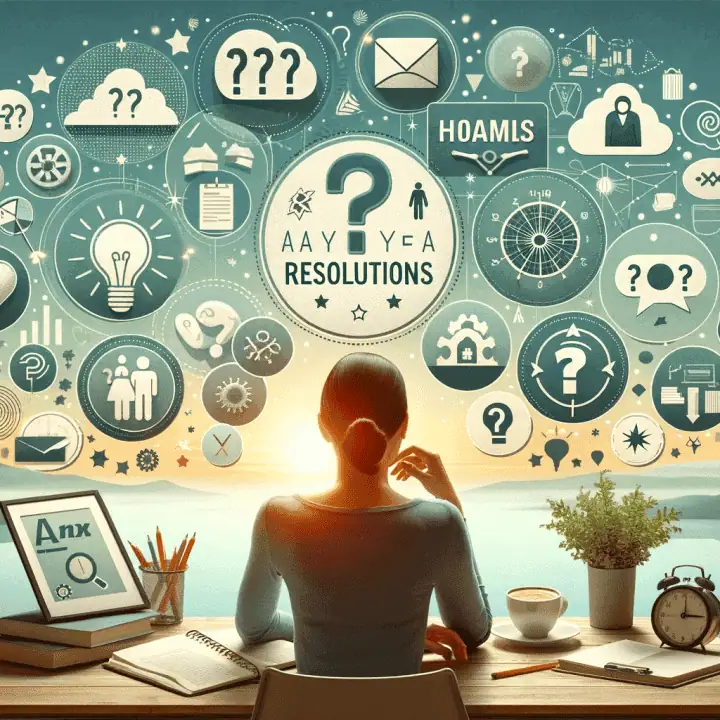Reinventing Oneself: The Role of Self-Concept in Entrepreneurial Success
What attributes do successful entrepreneurs possess that significantly impact their achievements? Can these qualities be cultivated and integrated into one’s character and self-concept? In this article, I argue that not only can these qualities be identified, but they can also be actively developed and woven into an individual’s character, leading to positive ramifications on their success in chosen pursuits.
It is undeniable that highly successful entrepreneurs differ from most of us. Their accomplishments go beyond building moderately thriving businesses; they create incredibly successful companies that sometimes change the world and enhance our lives with innovative products or services.
Overcoming the Fixed Personality Fallacy: Understanding the Fluidity of Character
Regrettably, in the English-speaking world, there is a prevalent cultural belief that one’s character, personality, or identity is fixed at a young age and remains unchanged throughout life. As the adage often attributed to Saint Augustine goes, “as the twig is bent so the tree will grow.” This saying implies that an individual’s traits and characteristics are determined by early life experiences 1.
Recent meta-analyses of longitudinal studies reveal that this notion is false. Over a lifetime, an individual’s personality changes, often significantly. The factors most influential in producing personality changes are life circumstances and experiences 2.
In the field of Neuro-Linguistic Programming (NLP), we not only dismiss the idea that personality traits and characteristics are fixed, we actively help clients change maladaptive or limiting qualities and, if desired, create and integrate new qualities into their self-concept.
One approach in NLP is bottom-up, wherein the NLP consultant or trainer exposes a person to new behavioural patterns through a series of experiences. By applying these new patterns diligently, the client develops new qualities that become part of their self-concept. For example, if an individual from Australia were immersed in a foreign culture and language without access to other English speakers, they would eventually learn the language and its cultural context. As they adapt to various new behavioural patterns, they develop new qualities that become part of their self-concept. Multilingual individuals can attest to the significant changes in perception and experience when shifting between linguistic codes.
A disciplined approach to learning NLP, wherein the student actively practises patterns using various techniques, leads to greater complexity and sophistication in how they interact with the world. The more the student can generalise NLP patterns into multiple contexts, the more likely they will develop new qualities within themselves, leading to changes in their self-concept.
Identifying and Exploring Qualities in One’s Identity: The Andreas Approach
Another NLP approach was developed by the late Steve Andreas. In his model, a person’s self-concept is composed of a collection of qualities or characteristics they possess. The skilled consultant trained in Andreas’s model helps the client identify a quality they believe is part of their identity. The consultant then aids the client in mapping out how the quality is represented in their past, present, and perceived future. The client typically has numerous examples of evidence for expressing the quality and an overall ‘felt sense’ of that quality being part of them. This mapped representation of the quality can then be used as a template to help the client build a new quality of their choosing.
I’ve personally employed a combination of these two methods, using NLP training to hone qualities I already possessed due to extensive experience. This approach not only improved my existing skills but also allowed me to incorporate new ones, dramatically impacting both my professional and personal life.
My extensive experience in training and facilitation, stemming from my lifelong involvement in learning and teaching NLP, has granted me invaluable insights. When we invited Steve Andreas to Australia to elucidate his model of self-concept, I opted to incorporate a skill I had honed for years rather than adopting a specific quality as part of my self-concept. NLP training, a multifaceted and refined skill, encompasses numerous patterns such as reading non-verbal cues from participants, framing techniques, metaphor usage, live demonstrations, and question-and-answer sessions. I employed Steve’s self-concept model to organise a plethora of teaching experiences, including, as Steve suggests, a small proportion of suboptimal training instances.
Remarkably, in the ensuing weeks, I observed and received feedback from others regarding a notable enhancement in my training abilities. Although having a sturdy foundation in the skill or quality you wish to integrate into your self-concept is undoubtedly advantageous, it is worth noting that it is feasible to adopt a quality with which an individual has limited experience.
Another illustrative case involves a former student of ours who exhibited patterns that diminished her sense of agency 3. in the world. Throughout her participation in our Graduate Certificate program in NLP, she progressively developed, practised, and integrated a set of patterns that bolstered her aegis. I subsequently coached her in applying Steve’s self-concept model to weave aegis into her self-concept. The results have been transformative, positively influencing her professional and personal life, her relationships with family, and her ability to establish and attain significant goals. In her presentations, she now exudes a different aura, with a robust sense of presence.
Identifying Key Qualities to Integrate into Your Self-Concept
So, which qualities might you want to develop and integrate into your self-concept? Think of attributes such as confidence, courage, compassion, creativity, empathy, enthusiasm, generous, imaginative, independence, kindness, optimism, patience, perseverance, resourcefulness, self-awareness, discipline, sensitivity, thoughtfulness, tolerance, and many more. Test whether these qualities resonate with you by stating, “I am (X),” and note how you feel. If it feels right, you likely have that quality as part of your self-concept. If you think that you do have quality (X) then ask the follow-up question, “How do I know that (X) is part of who I am?” If the quality is part of your self-concept you will have many examples of evidence in your past history.
Entrepreneurs tend to possess a range of qualities, including being visionary, passionate, resilient, self-motivated, creative, innovative, adaptable, decisive, and more. In my experience coaching successful entrepreneurs, I’ve observed several recurrent qualities: outcome-directed, optimistic, visionary, possessing a sense of agency or aegis 4, organised 5, innovative and adaptable. Cultivating these qualities and integrating them into one’s self-concept can significantly impact one’s entrepreneurial success.
The Four Quadrants of Future Outlook: How Optimism, Pessimism, and Definiteness Interact
The concept of Aegis, paired with optimism about the future, dovetails splendidly with PayPal co-founder and venture capitalist Peter Thiel’s idea, as presented in his book “Zero to One: Notes on Startups, or How to Build the Future” which can help us appreciate how these attitudes affect innovation, entrepreneurship, and progress. Thiel proposes a framework to characterise different cultural attitudes towards the future, using a quadrant comprising two axes: optimism versus pessimism and definite versus indefinite. This yields four possible mindsets.
Definite Optimism: Cultures subscribing to this mindset envisage a luminous future and devise specific plans to achieve it. They actively pursue their goals, confident in their capacity to shape the future. The United States during the 1950s-60s exemplified this attitude.
Indefinite Optimism: Cultures holding this outlook are hopeful for the future but lack concrete plans or objectives. They bank on the notion that progress will materialise on its own through external forces or serendipity. The United States has increasingly gravitated towards this perspective.
Definite Pessimism: This mindset acknowledges a dismal future but maintains that actions can mitigate the negative consequences. These cultures adopt conservative planning and concentrate on conserving resources to prepare for challenging times. This attitude has been prevalent in countries like Russia or China in the past.
Indefinite Pessimism: Cultures in this quadrant harbour a pessimistic view of the future without a lucid plan to tackle it. They tend to adopt passivity, depending on fate and external circumstances to steer the course of events. This mindset is widespread in some European countries, confronted with long-term economic stagnation.
Thiel’s construct proves instrumental in understanding how various cultures approach the future and the ramifications for innovation, entrepreneurship, and progress.
Thiel’s “definite optimism” 6 category meshes seamlessly with the previously discussed Aegis quality. Intriguingly, a person could possess Aegis yet remain pessimistic about the future. The specific amalgamation of qualities an individual has influences their entrepreneurial success.
In my estimation, Aegis, optimism about the future, trial and error learning (feedback), hard work, determination, and creativity and innovation constitute a triumphant combination. Identifying and actively cultivating the qualities that bolster your entrepreneurial endeavours is not only desirable but also feasible and executable. If you so wish, you can reinvent yourself to embody the traits of successful entrepreneurs as part of your self-concept or identity.
It is worth noting that incorporating a new quality into one’s self-concept still requires reference experiences of expressing that quality. Fortunately, even if the person has minimal experience with the desired quality in their personal history, the quality can be modelled from others as a basis for development and incorporation.
In my view, a winning combination for entrepreneurial success includes aegis, optimism, trial and error learning, hard work, determination, and creativity. Actively developing these qualities is not only desirable but also achievable. If you so desire, you can reinvent yourself to embody the qualities of successful entrepreneurs as part of your self-concept.
In our Graduate Certificate in Neuro-Linguistic Programming, we teach how to apply Steve’s model for developing new qualities as part of self-concept, along with other essential skills for entrepreneurial success such as advanced interpersonal communication and self-management. In my next article in this series, I will outline the specific key skills required for successful entrepreneurship and explore various options for developing expertise and expert performance in these crucial capabilities.
For further exploration, I recommend the following:
Books
Aegis: Patterns for extending your reach in life, work and leisure. by Jules Collingwood
Zero to One: Notes on Startups, or How to Build the Future. by Peter Theil with Blake Masters.
Transforming Yourself: Becoming who you want to be. by Steve Andreas.
Questionnaire
What’s your Futures Mindset
This free questionnaire will assist you in discovering which of the following you are currently most aligned with; Definite Optimism, Indefinite Optimism, Definite Pessimism and Indefinite Pessimism. Do the questionnaire and receive a free report upon completion.
Short Courses
Composing a Brighter Future with Chris Collingwood.
This remote learning course covers the essential patterns for creating a fulfilling future that is aligned with your most important values. It’s a must do program for entrepreneurs and individuals who want to begin the process of developing entrepreneurial skills
Competitive Advantage, States and Performance with Chris Collingwood
This remote learning course is for individuals who want to significantly improve their performance and make the most of their most limited resource – their time, by optimising their states. This course is launching soon.
Comprehensive accredited training in NLP
10970NAT Graduate Certificate in Neuro-Linguistic Programming with Chris and Jules Collingwood.
This comprehensive program in NLP is available in two formats: blended learning or fully online. Many of our graduates have gone on to develop very successful multimillion-dollar businesses.
Coaching with Chris Collingwood
Consider one-on-one coaching either in-person or online, for developing the qualities you need to be a successful entrepreneur.
Related articles
Learn more about NLP by reading our Ultimate NLP Compendium of NLP
Footnotes
- An adjacent idea that certain events in the past are formative and cause limitations in the client’s present life is widely held in some forms of psychotherapy. Resulting in unnecessary and time-consuming ‘psycho-archeology’.
- Personality Trait Change in Adulthood by Brent W. Roberts and Daniel Mroczek (2008). In this study, the authors conducted a meta-analysis of 92 longitudinal studies that examined personality traits across different age groups. The results showed that there are significant changes in personality across the lifespan, with some traits showing more change than others. The authors also noted that the degree of personality change can vary depending on life circumstances and experiences. For example, significant life events such as marriage, divorce, or the birth of a child can influence personality change.
- In psychology, agency refers to an individual’s sense of control or ability to take action and make choices that influence their environment or circumstances. It is the capacity of an individual to act independently and make their own decisions, rather than simply being a passive recipient of external events or influences. This sense of agency is closely related to concepts such as self-efficacy, personal responsibility, and autonomy and is considered to be a fundamental aspect of human psychological functioning. It is often studied in the context of motivation, goal-setting, and achievement, as well as in the development of a healthy and adaptive sense of self.
- Aegis is a term coined by my partner, Jules Collingwood, that describes a sense of agency combined with the expectation of having authority to make decisions and take action without needing permission from a third party. In other words, it is a combination of personal agency and delegated authority. This sense of aegis enables individuals to proactively influence the context in which they operate to achieve the outcomes they desire. It implies a level of autonomy and responsibility, as well as the confidence to take risks and make decisions in pursuit of one’s goals. The concept of aegis is often associated with leadership and management, where individuals are expected to take charge of a situation and make decisions that affect the success of their organisation or team. In summary, aegis is a combination of agency and authority, and it is a powerful tool for achieving success and influencing outcomes in any context.
- An entrepreneur who is dedicated to organising and creating systems in every aspect of their business is someone who values efficiency, productivity, and sustainability. They understand that effective systems and processes are critical to the success of any business, and they work diligently to develop and implement strategies that streamline operations, reduce waste, and optimise performance. This process often involves careful planning, detailed analysis, and ongoing evaluation and refinement to ensure that each system is effective and efficient. By focusing on organisation and systemisation, entrepreneurs can create a culture of excellence and high performance within their business, which can lead to increased profitability, improved customer satisfaction, and long-term success. Whether it is implementing a new inventory management system or refining a customer service process, entrepreneurs who prioritise systemization are able to maximise the value of their time and resources while ensuring that their business is always operating at its best.
- If you personally already have the characteristics of a definite optimist, congratulations. This combination of qualities will assist you in your entrepreneurial endeavours. If you happen to fall into one of the other three quadrants, rest assured that you can, if you desire, cultivate and develop the qualities of a definite optimist.
References
Andreas, Steve. (2002). Transforming Yourself: Becoming who you want to be. Real People Press: Moab, UT
Collingwood, Jules. (2016). Aegis: Patterns for extending your reach in life, work and leisure. Emergent Publications: Sydney, Australia
Collingwood, Jules., Collingwood, Chris. (2001). The NLP Field Guide Part 1; A reference manual of practitioner level patterns. Emergent Publications: Sydney, Australia
Roberts, B.W. and Mroczek, D., 2008. Personality trait change in adulthood. Current directions in psychological science, 17(1), pp.31-35.
Theil, Peter., Masters, Blake. (2014). Zero to One: Notes on Startups, or How to Build the Future. Crown Business: New York
Found this article useful? Share with your network!
Similar Posts
Subscribe Now!
Stay Up-to-Date with Our Latest Courses and Special Offers
Stay in the loop with new course releases and opportunities by completing our form. Never miss out!



